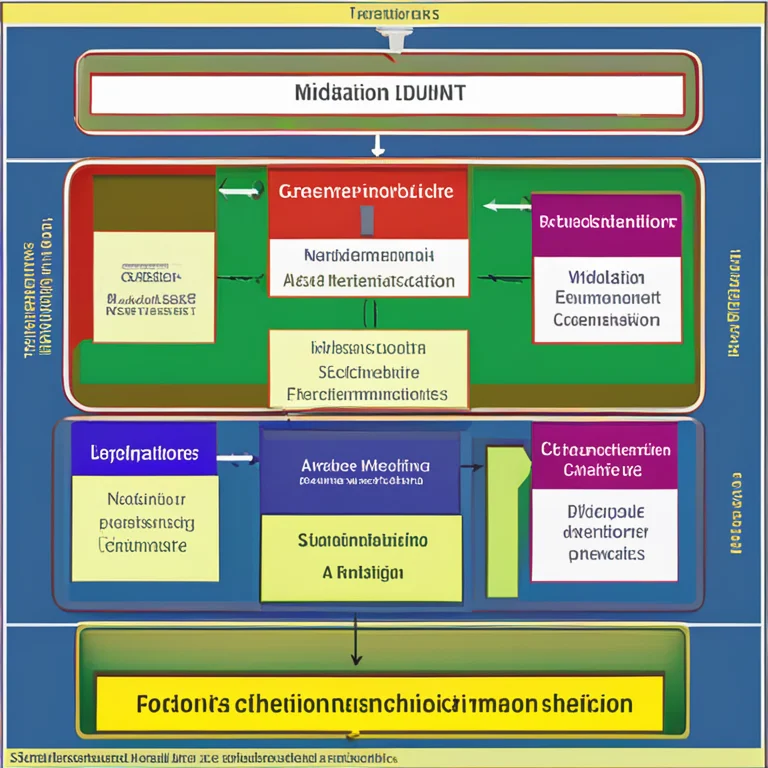
Calming the Storm: Meditation Techniques to Lower Cortisol
Discover effective meditation methods to combat stress hormones and foster tranquility in this insightful guide to lowering cortisol levels.
article by Hina Kurosawa
Introduction to Cortisol Reduction
Meditation has long been revered for its stress-reducing properties, offering a refuge from the frenetic pace of modern life. In recent years, scientific studies have corroborated what many wisdom traditions have suggested for centuries: meditation isn't just a peaceful practice; it is a powerful tool to decrease cortisol, commonly known as the stress hormone. High levels of cortisol can lead to a range of health issues, from insomnia and weight gain to anxiety and heart disease. As we delve into the symbiotic relationship between meditation and cortisol reduction, the following paragraphs will illuminate how you can harness this ancient technique to foster physical and mental well-being.

Understanding Cortisol's Effects
Cortisol is secreted by the adrenal glands in response to stress. While it's crucial for survival, helping us react swiftly to threats, its constant presence in high amounts can be detrimental. Elevated cortisol levels over prolonged periods can wreak havoc on immune function, memory, and metabolism, among other things. Meditation offers a natural and effective counterbalance, triggering the body's relaxation response and inhibiting excess cortisol production. This balance is critical for maintaining both mental clarity and overall health.

Meditation's Mechanism of Action
Meditation works by activating the parasympathetic nervous system—the part of your autonomic nervous system responsible for relaxation and regeneration. Through techniques like focused attention, controlled breathing, and mindfulness, meditation shifts the body's balance away from the stress-induced sympathetic response, reducing the release of cortisol. Regular practitioners of meditation can experience a decrease in stress levels, improved emotional stability, and a stronger resilience to life's pressures.

Types of Meditation for Cortisol Reduction
There are numerous meditation techniques available, but some are particularly adept at lowering cortisol. Mindfulness Meditation involves staying present and aware without judgment, a practice that has been shown to decrease stress markers significantly. Transcendental Meditation, which uses a mantra to focus the mind, has also garnered attention for its ability to reduce cortisol and improve health metrics. Additionally, Guided Imagery and Progressive Muscle Relaxation are forms of meditation that can initiate the relaxation response, thwarting excessive cortisol secretion.

Creating a Meditation Routine
Consistency is key for meditation to effectively manage cortisol levels. Aim to meditate for at least 10 minutes daily; however, even shorter sessions can yield benefits. Morning practices can set a calm tone for the day, whereas evening sessions might promote better sleep. Tailoring your meditation space for tranquility and minimizing distractions can enhance your practice's efficacy. Remember, the goal is to cultivate a habit that fits seamlessly into your lifestyle, offering a steady antidote to stress.
Scientific Evidence Supporting Meditation
Recent studies further substantiate meditation's role in stress reduction. Research from 2024 illustrates a direct correlation between mindfulness practices and lowered cortisol levels. Moreover, investigations into meditation techniques have revealed improvements in blood pressure, anxiety management, and emotional well-being—all linked to decreased cortisol production. As our understanding grows, meditation emerges as a vital component of holistic health paradigms and stress management strategies.
Conclusion and Future Directions
Embracing meditation as a cortisol-lowering strategy is more than a wellness trend—it is a sound investment in your health. With continuous research unveiling the tangible benefits of meditation, it's clear that this ancient practice will maintain its relevance in the years to come. Whether you're new to meditation or an experienced practitioner, the journey toward reduced cortisol levels and improved health is well within reach.
Published: 1/9/2024
Modified: 1/9/2024
More predictions
Come back here soon to learn more about yourself and your future


Serenity Through Meditation Retreats
Embark on a transformative journey at a meditation retreat to recharge, refocus, and reconnect with your inner self.


Retreat into Serenity: A Meditation Haven
Discover the transformative power of a meditation retreat and find tranquility for mind, body, and spirit in our comprehensive guide.


The Tranquil Bridge: Meditation's Impact on Sleep Quality
Discover how meditation can enhance sleep quality, weaving a path to better rest and well-being